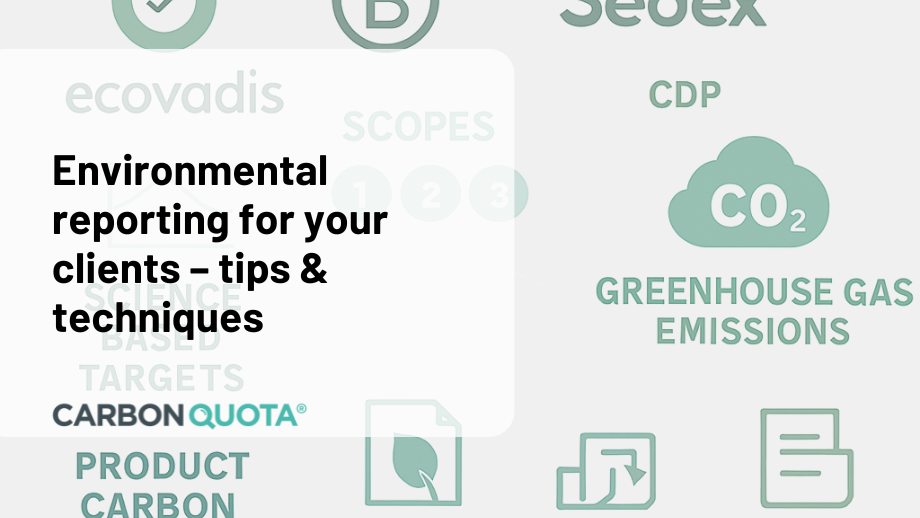Achieving high scores in sustainability frameworks such as CDP and EcoVadis requires more than just ambition, it demands precision, transparency and sector-specific data. That’s where CarbonQuota makes a measurable difference.
While many carbon-accounting platforms offer generic, spend-based reporting, our approach is built on real activity data tailored to the print, packaging and display sectors. We understand that your carbon profile is not the same as a technology firm or a retail business. The emissions profile of a print or packaging operation depends on the materials you buy, the machinery you run, the substrates you use, and the logistics that bring everything together. CarbonQuota’s platform is designed precisely for these realities – ensuring your environmental disclosures are accurate, defensible and aligned with recognised standards.
Moving beyond spend-based carbon accounting
Some sustainability software providers rely heavily on spend-based greenhouse gas (GHG) accounting to automate calculations. This method estimates emissions using financial expenditure data – for example, how much a company spends on paper or inks and applies generic emission factors. While this approach can appear efficient, it introduces significant inaccuracies because it assumes everyone pays exactly the same rate for goods and services
At CarbonQuota, we take a different approach. Our proprietary database is specific to the print, packaging and media industry, built from verified data on materials, processes and energy use across hundreds of production environments. Rather than estimating from high level averages and abstract metrics, we calculate emissions based on the actual quantities and specifications of materials used, including paper grammage, ink coverage, coating type, finishing process and more. This depth of accuracy ensures your reported data truly reflects your operations – and stands up to scrutiny in CDP or EcoVadis assessments.
Our proprietary database is specific to the print, packaging and media industry, built from verified data on materials, processes and energy use across hundreds of production environments.
Meeting EcoVadis expectations for activity-based data
EcoVadis recognises that spend-based estimates can only take a business so far. They permit this approach in year one, allowing companies to begin their sustainability journey with accessible data. However, from year two onwards, EcoVadis expects more robust, activity-based data that demonstrates continuous improvement and credible measurement.
This is where CarbonQuota’s methodology offers a clear advantage. Our platform and consulting teams help you collect and integrate primary activity data – from material purchasing records and machine logs to energy use and waste data. This ensures your EcoVadis submission is evidence-based, traceable and ready for audit. Relying solely on spend-based methods may seem simpler at first, but it risks non-compliance in later years and often leads to costly rework or provider changes.
While many carbon-accounting platforms offer generic, spend-based reporting, our approach is built on real activity data tailored to the print, packaging and display sectors.
Helping you strengthen CDP and EcoVadis submissions
Several organisations have moved to CarbonQuota after finding limitations with spend-based or generic reporting tools. Through CarbonPro, our clients gain structured support for completing sustainability frameworks such as EcoVadis and CDP. We guide them in aligning their data with specific reporting criteria and help populate the relevant sections using verified, activity-based carbon data.
To do this effectively, we collaborate closely with your sustainability team, gaining access to the required forms and documentation to ensure seamless integration. The result is a submission that not only meets framework requirements but also enhances your credibility with customers, suppliers and investors.
Contact our expert team today explore how we can help your business to imrpove your sustainability submissions and scores.



